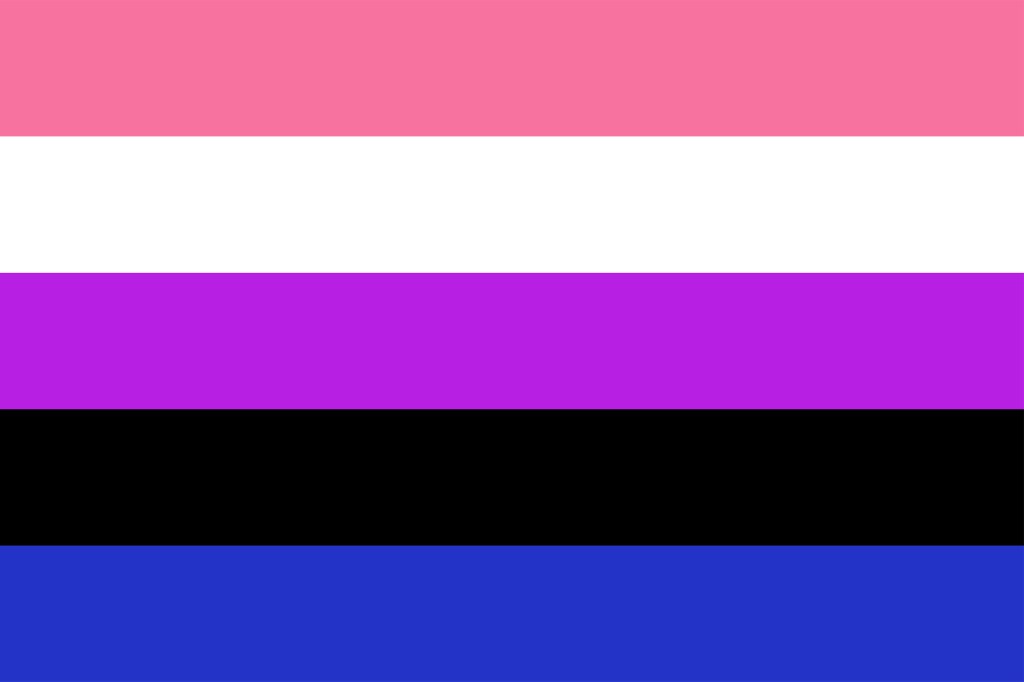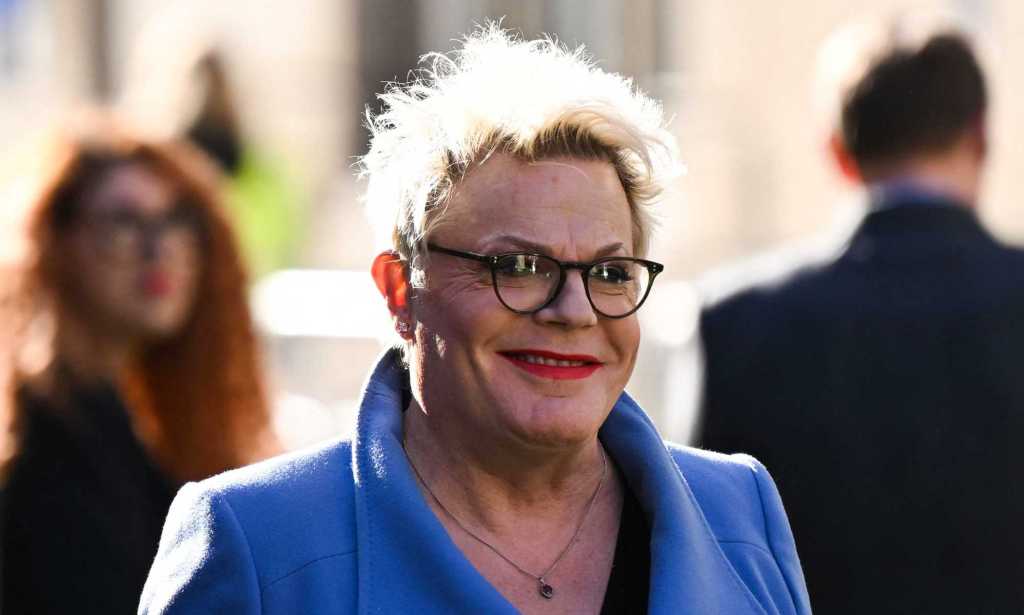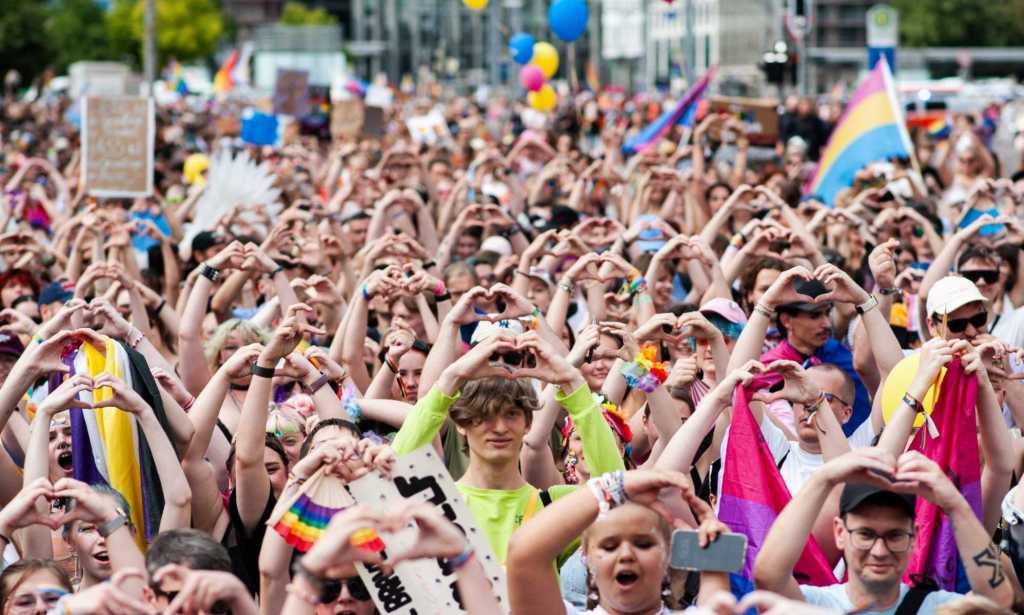What genderfluid and genderqueer mean, how the terms differ, and how you can be a great ally

Stock photo of a genderqueer person at a Pride march (Wikimedia Commons)
If the traditional gender categories of “male” and “female” feel too restrictive to you, there’s a chance you could be genderfluid or genderqueer.
Gender is a spectrum, not a binary, and the words we use to describe it are constantly changing as our language evolves to encompass identities that have always existed, but were previously hidden due to a lack of acceptance in society.
We now have a wider range of gender expression than ever before, which is great! But it’s OK to ask questions. Here’s a breakdown of what it means to be genderqueer and genderfluid, and how the two are different.
What is genderqueer?

Genderqueer is an umbrella term to describe someone whose gender identity doesn’t fit within socially constructed norms, whether that’s in terms of their thoughts, feelings, behaviours or presentation.
According to a history of the term published in them, “genderqueer” originated in activist circles in the 1990s and grew in commonality over the last three decades.
Every genderqueer person experiences their gender in a way that is unique to them and the label can mean different things to different people.
For example, some genderqueer people fall under the banner of non-binary, and these two categories can sometimes overlap. Others may feel that they don’t identify with any gender at all, and this is called agender.
“To me, ‘genderqueer’ represents a queering of gender, so to speak,” Laura A Jacobs, a psychotherapist who specialises in trans and gender non-binary issues, told Vice.
“It’s a deliberate playing with gender in a very political sense, and being provocative around gender norms to highlight the gender stereotypes of our culture. It is also how I identify.”
Many genderqueer people will use gender-neutral pronouns such as the singular “they”, while others are comfortable using “she/her/hers” or “he/him/his”. It’s important to ask someone what pronouns they use if you’re not sure.
What is genderfluid?

Unlike genderqueer people, those who identify as genderfluid have a gender that is not fixed, and their gender identity may shift over long or short periods of time.
Some people might identify strongly with a particular gender one day, and another gender the next – it all depends on how they’re feeling in the moment.
“I would be equally comfortable with a male or female body. My male personality is more outgoing than my female one. It’s like having both male and female energies and some days a mix of both,” explained Daniela Esquivel Asturias in the Guardian.
Genderfluidity is often tied into personal expression and presentation. For some it may be a way to explore gender before landing on a more stable gender expression or identity, while others may fluctuate all their lives.
Some genderfluid people are transgender, but not everyone who experiences changes in their gender expression or identity identifies as genderfluid. Nor does everyone want gender-affirming medical treatment to change their body to better align with their gender identity.
As with people who identify as genderqueer, it’s important to ask what pronouns they use rather than assuming.
Genderfluid and genderqueer celebrities

A growing number of celebrities are embracing gender non-conformity and fluidity in their lives.
The stand-up comedian Suzy Eddie Izzard, who’s long identified as trans, is genderfluid and uses she/her pronouns.
Izzard calls herself “somewhat boy-ish and somewhat girl-ish”. She uses the word “transgender” as an umbrella term.
Australian model and actor Ruby Rose has long been open about her identity, alternately describing herself as “genderfluid” and “gender neutral”. The Walking Dead‘s Nico Tortorella is also genderfluid, as is their spouse Bethany C Meyers.
JD Samson of the lesbian synthpop group Le Tigre uses a range of different labels. “I think my identity, or the words that I choose, vary a bit – but I would identify as a woman, as a lesbian and as a queer person, and also as genderqueer,” she told Archer magazine in 2016.
In 2021, Game of Thrones star Maisie Williams said she was also exploring genderfluidity while retaining feminine pronouns. “I like that I don’t need to label that, I guess, and can just express myself that way and still feel, and identify, as female,” she said.
And Queer Eye‘s Jonathan Van Ness described his experience with gender in a 2019 interview with Out. “The older I get, the more I think that I’m non-binary — I’m gender non-conforming. Like, some days I feel like a man, but then other days I feel like a woman,” he said.
“I think my energies are really all over the place. Any opportunity I have to break down stereotypes of the binary, I am down for it, I’m here for it.”
How to be a genderqueer ally

Listen to genderqueer youth and validate their experience of their gender. Don’t make assumptions or project expectations based on their gender – just have patience and allow them to explore without fear of judgement.
If a genderqueer person is struggling with their identity, offer to connect them to appropriate resources so they can talk to others with similar experiences. Gender Spectrum is a great resource for both gender-fluid youth and the adults in their lives.
Use their correct pronouns, but don’t worry if you mess up every now and then, just apologise and move forward.
Finally, don’t pressure them to identify with any particular label. Many people try out a label for a while to see if it fits, and if they change their mind later on that’s fine! Everyone is the expert on their own gender, so let them choose the descriptors that suit them.

